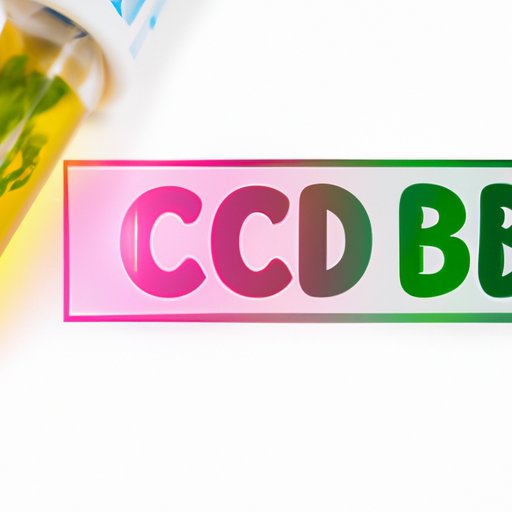Introduction
CBD, or cannabidiol, is a naturally occurring compound found in the cannabis plant. Over the last few years, CBD has gained immense popularity due to its potential health benefits, including pain relief, anxiety reduction, and improved sleep quality. However, many employers, sports organizations, and other industries require drug testing to ensure safety and compliance with regulations, leading to the question: does CBD come out on drug tests?

The basics of drug testing and CBD
Drug tests typically involve analyzing a biological sample, like urine, blood, or hair, to detect the presence of certain compounds. There are different types of drug tests, including urine, saliva, blood, and hair tests, each with varying detection windows. THC, the psychoactive compound found in cannabis, is typically what drug tests look for. Unlike THC, CBD does not produce an intoxicating effect and is not psychoactive. THC and CBD also differ chemically and interact with the body’s cannabinoid receptors differently.

The legality of CBD and drug testing
In 2018, the Agriculture Improvement Act, also known as the 2018 Farm Bill, removed hemp and its derivatives, including CBD, from the list of controlled substances. This led to a surge in the production and sale of CBD products, but confusion remains regarding the legality of CBD and its impact on drug testing. Despite being federally legal, drug testing policies and laws vary across states and industries. For example, the military has a zero-tolerance policy on THC, including trace amounts found in CBD products. Potential consequences for failing a drug test for THC can include losing a job, being suspended from a sports team, or facing legal consequences.

Understanding how CBD affects drug tests
The amount of THC in a CBD product can determine whether it triggers a positive drug test. Full-spectrum CBD contains various cannabinoids, including THC, while CBD isolate only contains CBD. While full-spectrum CBD may provide more benefits than isolate, it also increases the risk of THC contamination and potential positive drug tests. An individual’s metabolism and frequency and amount of CBD consumption can also impact drug test results.
How to consume CBD without triggering a drug test
To decrease the risk of failing a drug test, it is essential to purchase high-quality CBD products from reputable sources. Third-party lab testing and the use of CBD isolate products can also minimize the risk of THC contamination. If a drug test is required, it may be worthwhile to disclose the use of CBD products and show proof of purchase and THC levels. Alternatively, some individuals may choose to avoid CBD altogether if a drug test is a concern.
Conclusion
While CBD may offer potential health benefits, it is important to understand the risks and legal implications of using CBD products, especially if drug testing is a concern. Ensuring the purity and quality of CBD products, disclosing CBD use if necessary, and considering the potential consequences of a positive drug test are crucial steps in making informed decisions regarding CBD use. As with any wellness approach, education and self-care are critical components in safely and effectively incorporating CBD into one’s health regimen.
